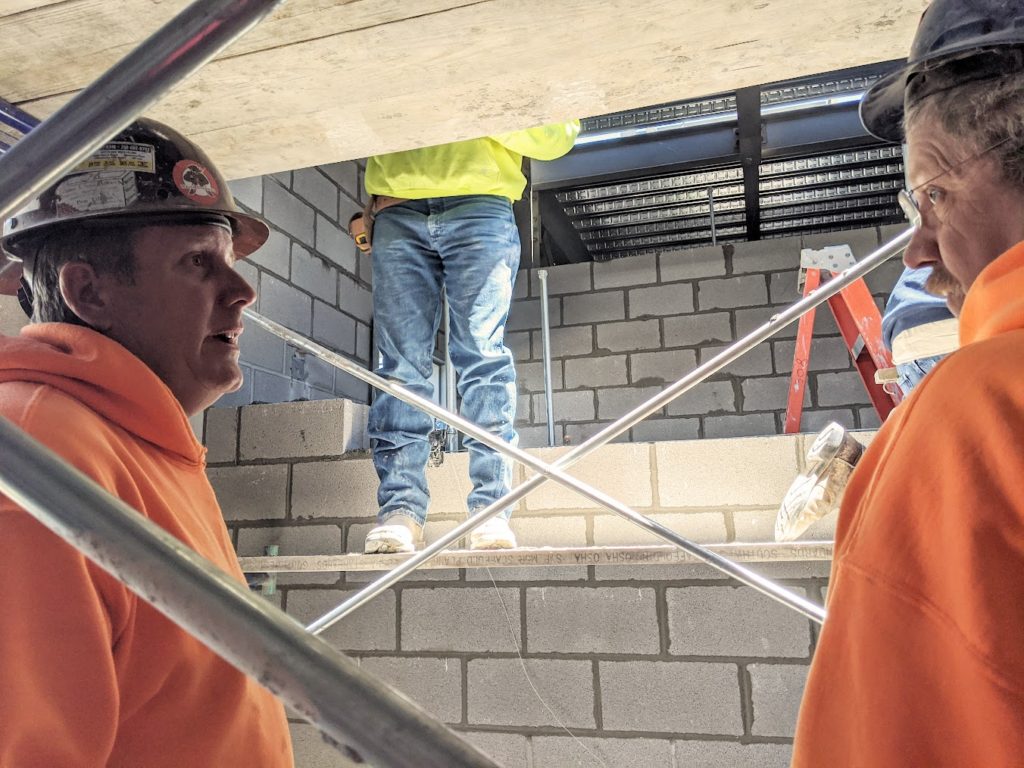The Slow Paying GC: How To Deal With The Headache Of Not Getting Paid
Words: Tiffany Tillema
Words: Tiffany Tillema, Senior Manager at Tillema & Sons Masonry
Photos: Tiffany Tillema and MicroStockHub
Not getting paid on time is more than an inconvenience. It could mean financial difficulty to the point of bankruptcy, especially if your company was already struggling to pay the bills. Once you have exhausted your company savings, you must resort to taking on a partner, loans, or even worse, a Merchant Cash Advance. None of these are options you want to resort to using.
So how do you handle a slow-paying GC? There are options, and depending on your state, they may or may not be options for you. Please refer to your state's laws and regulations before implementing these strategies.
Read the Contract
Let's start at the beginning with the contract. Contracts are long and boring and often use language that is not easily decipherable. You must read it carefully and if you question anything, have an attorney review it. What you are going to look for is the payment section. Usually, this is tucked away in the middle of the contract. There are several ways this can be worded. Most typically have either a "Pay if Paid" or a "Pay when Paid" clause. I noticed lately that some of the GCs have changed the wording to "Payment contingent on receipt of owners payment." That is the same as pay if paid. This will tell you which direction you should go to demand payment.
"Pay when Paid" keeps the obligation to pay the sub-contractor on the original contractor. This simply means that if for some reason, the owner does not pay after a reasonable amount of time, the GC will have to pay you. It may take a little bit, but it is usually enforceable.
"Pay if Paid" is a little more complicated to enforce. This clause puts the obligation back on to the owner. If the owner does not pay the GC, then the subcontractors do not get paid either. I see this clause the most because the contractor feels it is protection for them.
Before signing the contract, you will have the opportunity to request changes; this is the time to negotiate. You can and should try to change the payment terms from "Pay if Paid" to "Pay when Paid." There is no guarantee they will change it; actually, it's probably not likely, but it's the first thing you should try.
Many states, such as California, have made the pay if paid clause unenforceable. Unfortunately, my state Texas has not, except under certain circumstances. This can make it more difficult to change the wording in the contract. Even if you cannot change the wording, it is not a deal-breaker. You will still get paid. They cannot hold your money indefinitely, and most won't hold your money up anyway. If they do, you still have options.
Demand Proof
You can start by demanding proof that they are making an effort to get payment from the owner. Legally they must show you evidence of any collection efforts against the owner. Driving this demand puts the overdue payment status back squarely on them. They can always say the owner has not funded, and you have no proof they did get funded, even if you suspect they have. This puts them in a bind as, according to prompt payment laws, they must give you the information upon request.
I have used this strategy on more than one occasion. Once I demanded proof of collection efforts, suddenly, they were funded, and so was I.

Mechanic's Lein or Bond Claim
One of the most potent tools to receive prompt payment is the mechanic's lien and the bond claim. A mechanics lien withholds the amount owed to the subcontractor until the amount is paid in full, or after a certain amount of time, the property can be foreclosed. Again each state has slightly different guidelines for filing. You must file an intent to lien first. In most states, it is three intents to lien before you can file. You must be prompt with these intents to lien. If you miss one filing by an hour, you will forfeit the entire process. The GC will know this and may wait till your third filing is on time before paying you, hoping you mess up and forfeit your monies. I strongly suggest using a good construction attorney to file for you. It will cost a few dollars, but they know precisely when and how to file. Usually, you will get paid way before the final lien gets filed. If not, you may be able to foreclose on the property. It is a win-win. I have never gotten to foreclose on a property, but my grandfather foreclosed on some apartments over a measly $10,000 check. For some reason, the GC didn't believe he would foreclose 100 units for that little bit. He did. My grandfather was the sudden owner of a whole apartment complex. Mechanics liens do work when done correctly, and many subcontractors do not use this to their advantage.
Bond claims are a bit different. They are a more potent form of demand for payment and have a different filing deadline than a lien. Again ask your attorney if you are in doubt. If bonding is on a particular project, use it instead of a mechanics lien. Bonding is used on most state and federal jobs and public works projects. Anything you do on a state or federal job you are not paid for will need a bond claim filed instead of a lien. The general contractor will ignore a lien notice, but they cannot and will not ignore a bond claim. It is a powerful tool to get your money.
Remember, know which you need to file, either a lien or a bond. Make sure you meet all paperwork filing deadlines and use an attorney if you need help. Make sure you have done the work you have claimed to do, have completed all the project requirements, and have not defaulted or breached the contract on your end before filing.
Other Remedies
Hopefully, you met all of your deadlines for filing the lien or bond, but if you filed and you do not see results, there are a couple of other ways to get your money.
Sue for unjust enrichment. First, you need to know whom to sue. You must sue the owner if the owner fails to pay the contractor. If the owner funded the contractor, you must sue the contractor. Suing the contractor for unjust enrichment may be more difficult. To receive compensation for unjust enrichment, you must prove they benefitted unjustly from withholding your pay. These are extremely hard to win, and you must prove they did something illegal, fraudulent, or in bad faith. There are three elements of unjust enrichment:
- You gave them something of value (i.e., the work and materials)
- They acknowledged what you provided and accepted it (i.e., a signed pay app)
- It's not fair that you didn't get compensated for what you provided.
Use your state's prompt payment laws. Again, each state is different, so know your state's rules. Texas is pretty strict on prompt payment. On privately owned jobs, owners must release payment within 35 days, and in turn, the GC must release their funds within seven days of being paid by the owner. The exception is a residential project, but even then, it can only be extended by 60 days. Public works are around 30 days, starting from delivery of materials or completion of a portion of the work for the contractor and adding seven days for the subs.
One reason Texas prompt payment laws are so effective is that interest rates are attached to the non-payment notice. Every month they do not pay, a 1% penalty is added, up to 18% per year. Also, under this law, you have the right to suspend work! Even if your contract says it is a breach of contract to suspend work on the project, you can still do so under the Prompt Payment Act. All you have to do is send them a 10-day notice that they violate the Act. As long as you send them the notification, you can suspend all work after the ten days until payment is made. You can add both a demobilization and a mobilization charge associated with the suspension of work. If it gets to that point, they must pay the past due amount plus the extra costs before you remobilize. Most of the time, you will be paid before the ten days are up. They know they will need to pay the extra costs incurred for the suspension of work. They also know this will cause the other trades to have to stop as well. It could get costly for them.

Be Nice
Whatever means you decide to use to procure payment, always remember to be kind. You do not want to be uncomfortable while finishing the job. Also, if you go to court, the emails and text messages may become part of the trial. You always want to look calm and collected even if you're boiling inside, which will be to your advantage later. Most importantly, always maintain professionalism.
The Bottom Line
Your state will have at least some if not all of these protections available to you. Be aware of your rights, learn which protections suit your situation, and file the proper paperwork on time. If in doubt, hire a construction attorney to help.